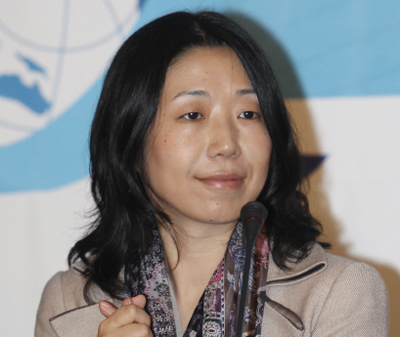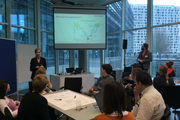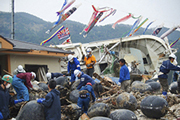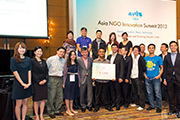한국의 희망제작소, 중국의 르핑사회적기업가재단, 일본의 니폰재단이 함께 모여 한중일 삼국 및 아시아 지역의 사회혁신을 증진하기 위해 동아시아사회혁신협의체를 결성했습니다. 두 차례에 걸친 워크숍을 통해 만난 팬 리 중국 르핑사회적기업가재단 수석자문으로부터 이 협의체의 의미와 배경, 앞으로의 포부를 들어보았습니다. 한글 번역문과 영어 원문을 함께 싣습니다.
동아시아사회혁신협의체(East Asia Social Innovation Initiatives, 이하 EASII)의 시작
아시아에서 사회혁신이 다양한 형태와 방식으로 떠오르고 있다. 식품안전이 최대 이슈인 베이징 인근에서는 소비자-농민 주축의 에코 벤처농업이 뜨고 있다. 서울시에서는 수백만 명에 이르는 통근자들을 위해 빅테이터를 대폭 활용한 편리한 서비스를 제공하고 있다. 또 일본에서는 위탁가정에서 자라는 10대 청소년의 복지를 위해 최초로 사회성과연계채권(SIB)을 발행하기 시작했다. 지난 11월 서울에서 열린 동아시아사회혁신협의체(East Asia Social Innovation Initiatives) 워크숍에서는 바로 이런 사회혁신의 성과들이 소개되었다.
동아시아사회혁신협의체는 이렇듯 한중일 삼국 및 아시아 지역의 다양한 사회혁신을 소개하고 증진시키기 위해 결성되었다. 사회혁신에 대한 인지도를 높이고 사회적기업가와 비영리조직, 사회투자자들과 같이 사회를 바꾸는데 일조하고자 하는 여러 단위의 활동을 지원한다는 목표 아래 중국의 르핑사회적기업가재단, 일본의 니폰재단, 그리고 한국의 희망제작소가 함께 뜻을 같이 한 것이다.
동아시아의 주요 경제주체인 중국, 일본, 한국은 환경 오염, 고령화사회와 같이 공통적으로 시급하게 해결해야 할 문제를 안고 있다. 한중일 삼국은 각기 새로운 혁신 프로젝트와 아이디어를 동원하여 사회문제들을 해결해왔지만, 동아시아를 관통하는 사회적 욕구, 문화, 환경에 적합한 긍정적인 사회 변화에 대한 개념과 연구, 그리고 이론은 부족한 상태이다. 동아시아의 사회혁신을 한 단계 끌어올리기 위해서는 서로의 아이디어와 가치를 적극적으로 교류하고 융합과정을 통해 각 분야와 지역을 포괄하는 통합적 파급력(Collective Impact: 특정 사회문제의 이해관계자가 모두 모여 문제의 총체적인 해법을 찾아내는 것)에 대한 고민이 필요하다. 그렇기 때문에 바로 지금이 동아시아사회혁신협의체(EASII)가 선구자적 역할을 할 수 있는 중요한 시점이다.

EASII 은 2015년 7월 도쿄에서 첫 시작을 알렸다. 2차 워크숍은 11월 5일 서울에서 2015 국제사회적경제협의체GSEF(Global Social Economy Forum)와 공동으로 개최했다. 워크숍 참가자들은 한중일 삼국 사회혁신의 최근 동향과 사례를 공유하고 공통적으로 당면한 과제들에 대해 논의하는 시간을 가졌다. 이런 사례들을 통해 소개된 각 나라의 엄청난 창의성과 눈에 띄는 결단력은 서로에게 많은 영감을 주고 사회혁신에 대한 의지를 불어넣었다. 동시에 우리가 분명히 느낀 바는, 아무리 훌륭하고 대단한 조직에 의해서 이끌어진 사회혁신이라 할 지라도 오늘날의 복잡한 사회문제들을 오롯이 홀로 해결할 수는 없다는 것이다. 우리는 다양한 섹터의 사회혁신가들이 만나고, 서로 영감을 얻고, 함께 할 수 있는 장을 만들어야 한다. 이것은 정부-시민섹터 협업이라든지 비영리조직의 연대의 영역을 넘어서는 체계적인 접근과 새로운 형태의 리더십을 요구한다. 이러한 목표를 가지고 EASII는 연구와 네트워크 단위로서 동아시아의 사회혁신 섹터 협업을 이끌고, 새로운 생각과 모델에 기초한 사회투자 해결책을 모색하고, 동아시아의 필요와 환경과 문화에 기여하는 사회혁신을 발전시키고자 한다.
스탠포드 사회혁신센터(The Stanford Center for Social Innovation)는 사회혁신을 “보다 효과적이고 효율적으로 지속가능하게 사회문제를 해결할 수 있는 새로운 방식”이라고 정의한다. 사회혁신은 고정된 하나의 이념이 아닌 지속적으로 변화하고 발전하는 과정에 그 의의가 있다. 가난한 사람들이 사회적 자본을 확충하는 것을 돕기 위해 세워진 르핑사회적기업가재단은 EASII와 함께 함으로써 중국과 동아시아에 더 큰 임팩트를 만들고, 더 많은 사회혁신가와 솔루션메이커들과 함께 하기를 열망한다.
글_팬 리 (르핑사회적기업가재단 수석자문위원 / 르핑사회적기업가재단, 글로벌링크이니셔티브 공동 창립자)
Korea + Japan+China + Social Innovation = Infinite Possibilities
?The Launch of East Asia Social Innovation Initiative(EASII)
Social Innovation is an emerging field that takes many different forms, from a consumer-farmer supported eco-agriculture venture in a suburb area of Beijing where food safety is the biggest concern, to the use of big data by the Seoul Metropolitan Government to bring more convenience to millions of commuters, to the first social impact bond initiative in Japan to help teenagers in foster care have a better life. These are a few of the examples discussed at the East Asia Social Innovation Initiative (EASII) workshop held in Seoul in November 2015.
The East Asia Social Innovation Initiative is a collaborative venture aimed at creating and supporting a robust social innovation movement in China, Japan, Korea and elsewhere. Launched by the LePing Social Entrepreneur Foundation (China), the Nippon Foundation (Japan) and the Hope Institute (Korea), the initiative aims to play a critical role in raising awareness about social innovation and promoting an environment that helps social enterprises, nonprofit organizations, impact investors and other change agencies achieve greater impact.
As the three major economies of East Asia, China, Japan and Korea face many of the same urgent social challenges, ranging from an aging society to pollution, and each has its own unique innovative projects and ideas on how to resolve them. The region lacks a shared base of concepts, research and theories of positive social change that can fit the needs, culture and environment of the three countries. To take social innovation in East Asia to the next level requires active exchanges of ideas and values as well as integration and collective impact that crosses sectors and the region. Here, EASII can play a pioneering role.
The inaugural EASII workshop was held in July in Tokyo 2015; a second workshop convened in Seoul in November 2015 in partnership with The 2015 Global Social Economy Forum. Participants shared the latest trends and practices in social innovation in the three countries as well as the challenges they face. We were inspired and encouraged by the creativity and determination evident in the case studies from the three countries. At the same time, it became clear that isolated efforts led by even the best and brightest organizations cannot solve the complex social problems that exist today. We need to create a market for social innovation where cross-sector players meet, get inspired and work together. This will require systematic approaches and a new type of leadership that goes beyond “government-social sector collaboration” or “nonprofit alliances”. With this goal in mind, EASII will serve as an accountable research body and network hub by working closely with leading cross-sector organizations active in social innovation in East Asia and globally to develop new concepts, benchmarks and solutions to challenges for social investment and social innovation that will serve the needs, culture and environment of East Asian countries.
The Stanford Center for Social Innovation defines social innovation as a novel solution to a social problem that is more effective, efficient, sustainable, or just than present solutions. Social innovation is a continuing process rather than an ideology. As a foundation established with the mission of leveraging social capital to help the poor, Leping Social Entrepreneur Foundation is committed to making a bigger impact in China as well as East Asia, and is eager for more innovators and solution makers to join EASII.
Fan Li (EASII Senior Advisor / LePing Social Entrepreneur Foundation; Co-founder, Global Links Initiative)






